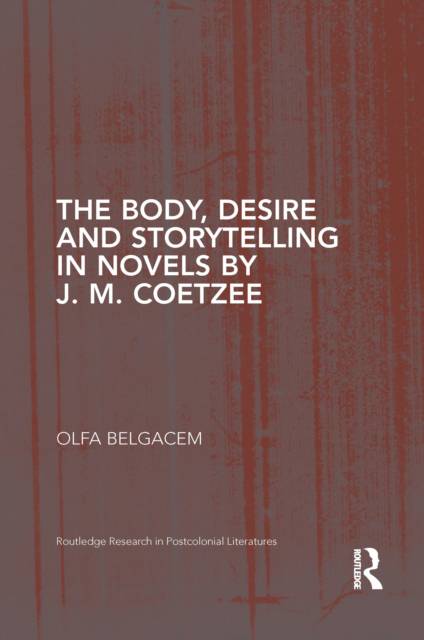
- Retrait gratuit dans votre magasin Club
- 7.000.000 titres dans notre catalogue
- Payer en toute sécurité
- Toujours un magasin près de chez vous
- Retrait gratuit dans votre magasin Club
- 7.000.0000 titres dans notre catalogue
- Payer en toute sécurité
- Toujours un magasin près de chez vous
Description
Asserting that Coetzee's representation of the body as subject to dismemberment counters the colonial representation of the other's body as exotic and erotically-charged, this study inspects the ambivalence pertaining to Coetzee's embodied representation of the other and reveals the risks that come with such contrapuntal reiteration. Through the study of the narrative identity of the colonial other and her/his body's representation, the book also unveils the author's own authorial identity exposed through the repetitive narrative patterns and characterization choices.
Spécifications
Parties prenantes
- Auteur(s) :
- Editeur:
Contenu
- Nombre de pages :
- 220
- Langue:
- Anglais
- Collection :
Caractéristiques
- EAN:
- 9781032094540
- Date de parution :
- 30-06-21
- Format:
- Livre broché
- Format numérique:
- Trade paperback (VS)
- Dimensions :
- 152 mm x 229 mm
- Poids :
- 303 g

Les avis
Nous publions uniquement les avis qui respectent les conditions requises. Consultez nos conditions pour les avis.






